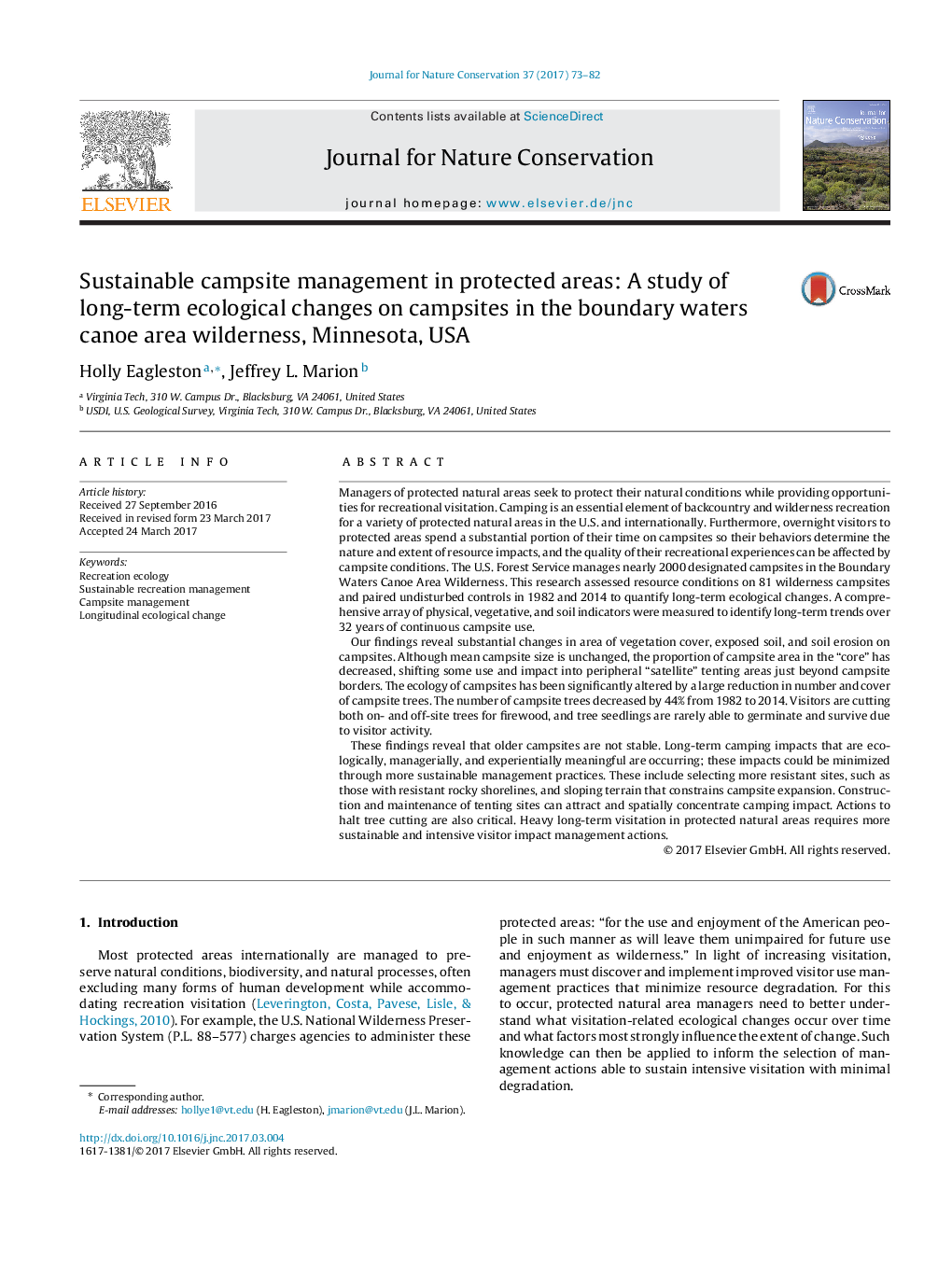| Article ID | Journal | Published Year | Pages | File Type |
|---|---|---|---|---|
| 5744833 | Journal for Nature Conservation | 2017 | 10 Pages |
Abstract
These findings reveal that older campsites are not stable. Long-term camping impacts that are ecologically, managerially, and experientially meaningful are occurring; these impacts could be minimized through more sustainable management practices. These include selecting more resistant sites, such as those with resistant rocky shorelines, and sloping terrain that constrains campsite expansion. Construction and maintenance of tenting sites can attract and spatially concentrate camping impact. Actions to halt tree cutting are also critical. Heavy long-term visitation in protected natural areas requires more sustainable and intensive visitor impact management actions.
Keywords
Related Topics
Physical Sciences and Engineering
Earth and Planetary Sciences
Earth and Planetary Sciences (General)
Authors
Holly Eagleston, Jeffrey L. Marion,
